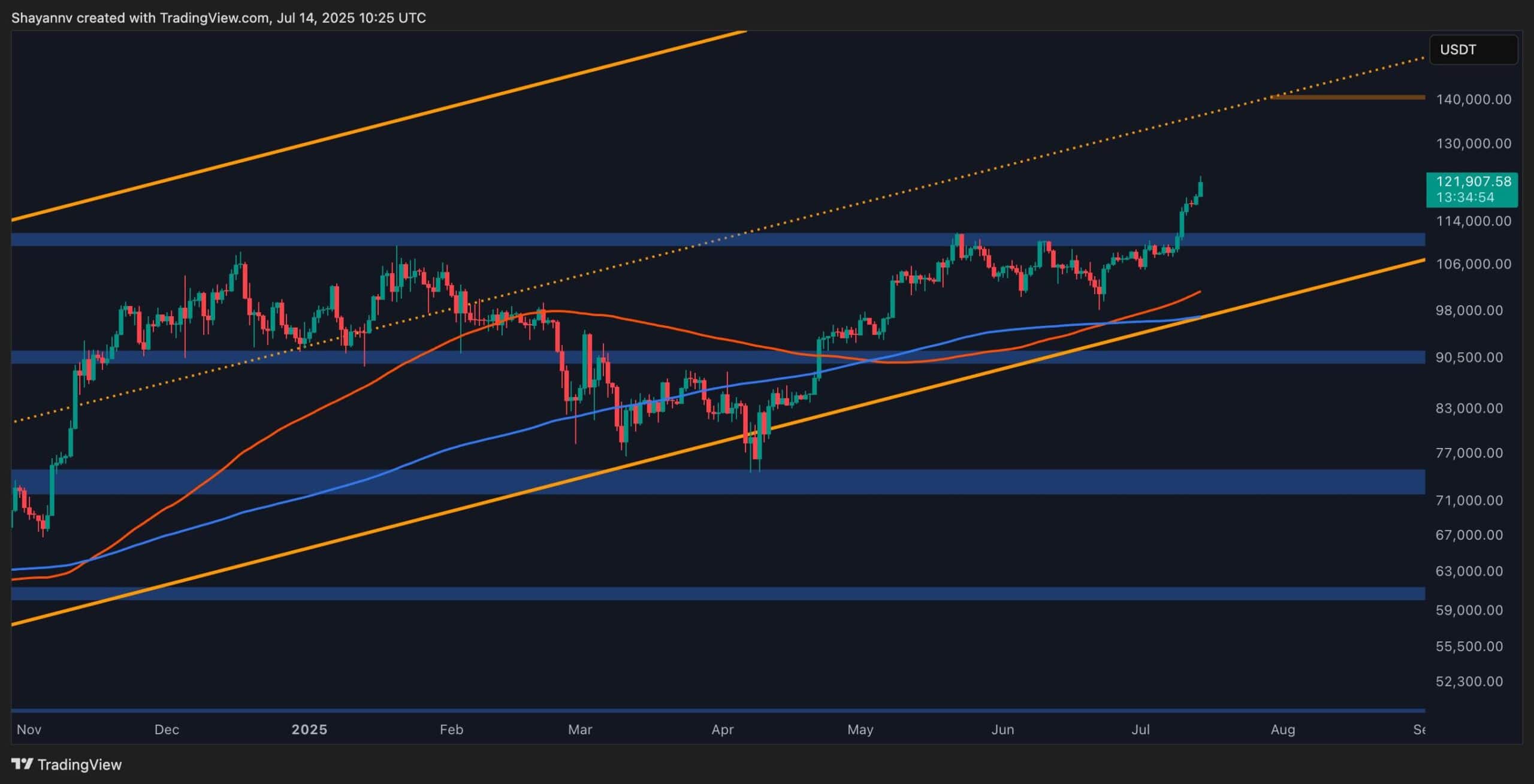Cryptocurrency
FBI tracked Colonial Pipeline hackers through Chainalysis

Recently, Colonial Pipeline has been hacked again. But the Federal Bureau of Investigation (FBI) could identify Colonial Pipeline hackers through analytics firm Chainalysis. It is reported by Bloomberg, citing representatives of the firm.
It is not clear how exactly the FBI could identify the attackers. It is alleged that Chainalysis collects a large amount of data from the blockchain and also relies on off-network information received from customers. The analytics firm uses machine learning and statistical analysis to figure out where and to whom cryptocurrency might be sent.
In May 2021, a group of hackers called DarkSide hacked and shut down the Colonial Pipeline, one of the largest oil pipelines in the United States, causing a fuel shortage on the East Coast. As a ransom, the hackers demanded that 75 BTC be transferred to an anonymous wallet. Colonial Pipeline hackers then apologized.
Earlier in September, analysts at Group-IB found that the number of cryptocurrency-related fraud sites rose to 2,000 in the first half of 2022, a 335% increase over the entire 2021. At the same time, just over 60% of all fraudulent crypto-sites are registered through Russian providers.
Earlier we reported that Cardano Vasil should be fully completed to activate all features.
Cryptocurrency
Saylor’s Strategy Bought Another 4,225 BTC Before Bitcoin’s Price Explosion: Details

Michael Saylor’s Bitcoin-oriented brainchild has made another massive purchase, accumulating 4,225 BTC for $472.5 million.
Due to the cryptocurrency’s substantial price expansion in the past few years, Strategy now sits at a mindblowing unrealized profit of roughly $30 billion.
This is because the company has spent $42.87 billion to acquire its BTC stash of 601,550 bitcoins bought at an average price of $71,268 per unit. Given BTC’s price as of press time ($121,500), this puts Strategy’s fortune at over $73 billion.
Strategy has acquired 4,225 BTC for ~$472.5 million at ~$111,827 per bitcoin and has achieved BTC Yield of 20.2% YTD 2025. As of 7/13/2025, we hodl 601,550 $BTC acquired for ~$42.87 billion at ~$71,268 per bitcoin. $MSTR $STRK $STRF $STRD https://t.co/cdUkviddqp
— Michael Saylor (@saylor) July 14, 2025
Saylor hinted about this purchase yesterday, indicating that some weeks, “you don’t just HODL.” Recall that the company didn’t announce a new acquisition last week, which was somewhat surprising given its history since the US elections in November last year.
Strategy’s former CEO has also been particularly vocal on X about different BTC purchases from other companies. In the past few days alone, he has reposted the accumulations completed by the likes of Metaplanet, K33, DigitalX Ltd., Sequans, and the Blockchain Group.
The average price of Strategy’s latest purchase means that it was most likely completed in the middle of the previous week when BTC challenged $112,000. The asset has traded well beyond that level ever since Thursday.
Binance Free $600 (CryptoPotato Exclusive): Use this link to register a new account and receive $600 exclusive welcome offer on Binance (full details).
LIMITED OFFER for CryptoPotato readers at Bybit: Use this link to register and open a $500 FREE position on any coin!
Cryptocurrency
Metaplanet Snaps Up 797 More BTC in Aggressive Bitcoin Gold Rush

Japanese investment firm Metaplanet has expanded its Bitcoin holdings with the purchase of 797 BTC, after spending approximately 13.8 billion yen, which is worth around $93 million.
The company acquired Bitcoin at an average price of around $117,000 per unit.
Aiming for “Escape Velocity”
Following the latest acquisition, Metaplanet currently holds 16,352 BTC, equivalent to approximately $1.64 billion. It maintains its position as the world’s fifth-largest publicly traded corporate BTC holder, according to data shared by BitcoinTreasuries. The accumulation now comes just a week after the Tokyo-listed company purchased 2,205 BTC.
The firm, which shifted from hotel operations to Bitcoin treasury management last year, has been accelerating its accumulation strategy amid rising institutional interest in crypto assets. Metaplanet has set an ambitious target to control over 210,000 BTC by 2027, which is around 1% of the total Bitcoin supply.
Metaplanet had previously revealed its plans to leverage its growing Bitcoin reserves to acquire cash-generating businesses, even potentially including a digital bank in Japan.
Last week, Gerovich told the Financial Times that the company is racing to accumulate as much BTC as possible, while describing it as a “Bitcoin gold rush” to reach “escape velocity” and maintain a lead over competitors. The exec also said that he would never sell the crypto asset.
“We think of it as a Bitcoin gold rush. We need to accumulate as much Bitcoin as we can to get to a point where we have reached escape velocity, and it just makes it very difficult for others to catch up.”
Metaplanet’s Ambitious Bitcoin Plan
In its next phase, Metaplanet aims to use the crypto asset as collateral to access financing, similar to how securities or government bonds are used. The goal will be to deploy these funds to buy profitable businesses aligned with its strategy. While crypto-backed lending remains rare in traditional banking, experiments like Standard Chartered’s pilot with OKX suggest growing institutional interest.
Gerovich ruled out issuing convertible debt to fund growth, preferring options like preferred shares to avoid repayment tied to volatile share prices. The firm said that it envisions digital banking services as a future area of expansion, and aims to deliver superior retail banking options in Japan using its BTC-backed leverage.
Binance Free $600 (CryptoPotato Exclusive): Use this link to register a new account and receive $600 exclusive welcome offer on Binance (full details).
LIMITED OFFER for CryptoPotato readers at Bybit: Use this link to register and open a $500 FREE position on any coin!
Cryptocurrency
Bitcoin Price Analysis: BTC Nearing Exhaustion or Gearing Up for $130K Next?

Bitcoin has officially entered price discovery once again, trading just below $122,000 at the time of writing. After months of consolidation and multiple failed breakout attempts, the bulls have finally regained full control.
The breakout above the previous all-time high around $112,000 was followed by explosive momentum, and investors are wondering how much further BTC will run.
By ShayanMarkets
The Daily Chart
The daily chart shows that the asset is still respecting the long-term ascending channel, as it rebounded from its lower boundary and is currently rallying toward the mid-line. The price decisively closed above the $112,000 previous all-time high, a level that acted as a distribution zone for over a month. Following this breakout, BTC printed several bullish continuation candles, pushing all the way up to $122,000.
Yet, a retracement into the $114K–$117K zone is probable to cool the market down. This pullback would not invalidate the bullish structure but instead offer a healthier continuation setup. As long as the price holds above the $114K breakout level, the medium-term structure remains strongly bullish.
The 4-Hour Chart
The 4H chart shows a clean breakout from the recent range and a near-vertical price expansion, confirming the daily momentum. After breaking above the descending channel, Bitcoin formed a strong impulsive leg. As a result, the RSI is now extremely elevated at 78+, hinting at potential short-term exhaustion.
The 4H chart also highlights the newly formed Fair Value Gaps stacked below the price, which could get revisited in the coming sessions or days. These FVGs can both attract the price and act as potential support. As long as BTC remains above the 114K block, short dips into this region would be considered bullish retests.
Moreover, if the price begins to range around the 121K–122K area, it would allow RSI to cool off and provide fresh momentum for the next breakout, without experiencing much correction.
Sentiment Analysis
Bitcoin Funding Rates
Funding rates have started to spike again, reflecting the surge in long-side leverage after the breakout. This sharp uptick in funding confirms that traders are aggressively chasing the move. While elevated funding is expected during trend continuations, it also introduces risk: the higher the leverage imbalance, the more vulnerable the market becomes to a flush.
Historically, when funding remains excessively positive while prices stall or consolidate, it often leads to a liquidation-driven pullback. So far, we haven’t seen aggressive spikes like those in Q1 2024, but it’s something to monitor closely.
If the asset fails to push higher while funding stays elevated, a quick shakeout into the 114K zone is possible. Until then, the sentiment remains bullish but slightly overheated, which aligns with current RSI readings and market structure.
Binance Free $600 (CryptoPotato Exclusive): Use this link to register a new account and receive $600 exclusive welcome offer on Binance (full details).
LIMITED OFFER for CryptoPotato readers at Bybit: Use this link to register and open a $500 FREE position on any coin!
Disclaimer: Information found on CryptoPotato is those of writers quoted. It does not represent the opinions of CryptoPotato on whether to buy, sell, or hold any investments. You are advised to conduct your own research before making any investment decisions. Use provided information at your own risk. See Disclaimer for more information.
Cryptocurrency charts by TradingView.

 Forex3 years ago
Forex3 years agoForex Today: the dollar is gaining strength amid gloomy sentiment at the start of the Fed’s week

 Forex3 years ago
Forex3 years agoUnbiased review of Pocket Option broker

 Forex3 years ago
Forex3 years agoDollar to pound sterling exchange rate today: Pound plummeted to its lowest since 1985

 Forex3 years ago
Forex3 years agoHow is the Australian dollar doing today?

 Cryptocurrency3 years ago
Cryptocurrency3 years agoWhat happened in the crypto market – current events today

 World3 years ago
World3 years agoWhy are modern video games an art form?

 Commodities3 years ago
Commodities3 years agoCopper continues to fall in price on expectations of lower demand in China

 Economy3 years ago
Economy3 years agoCrude oil tankers double in price due to EU anti-Russian sanctions



























